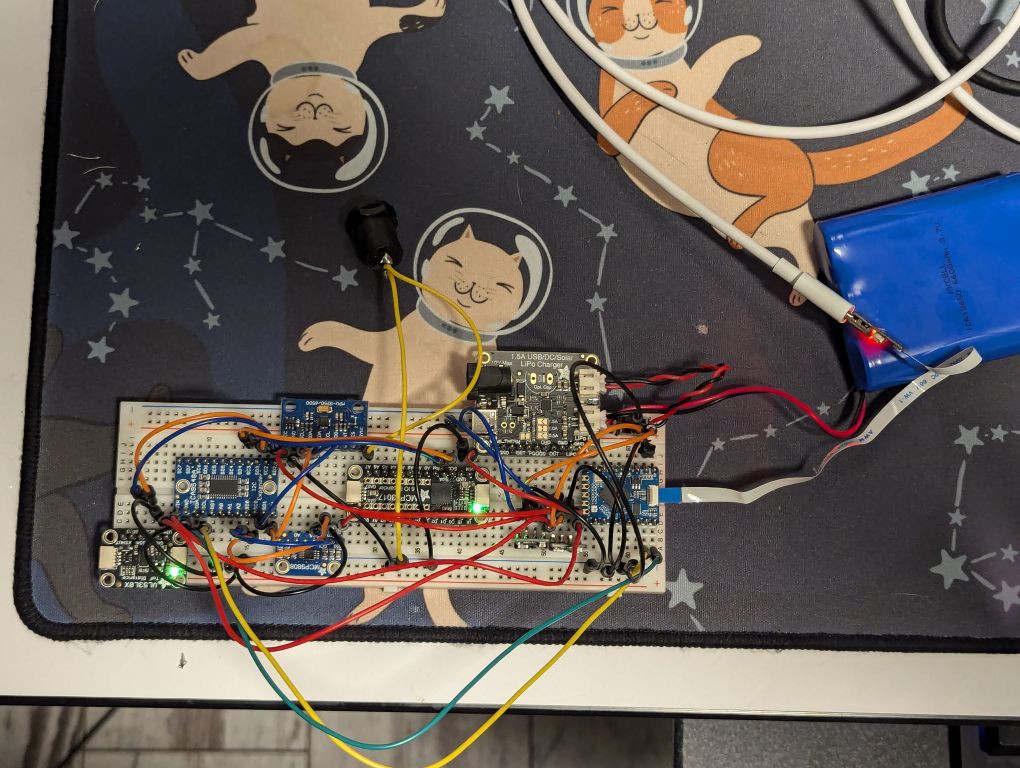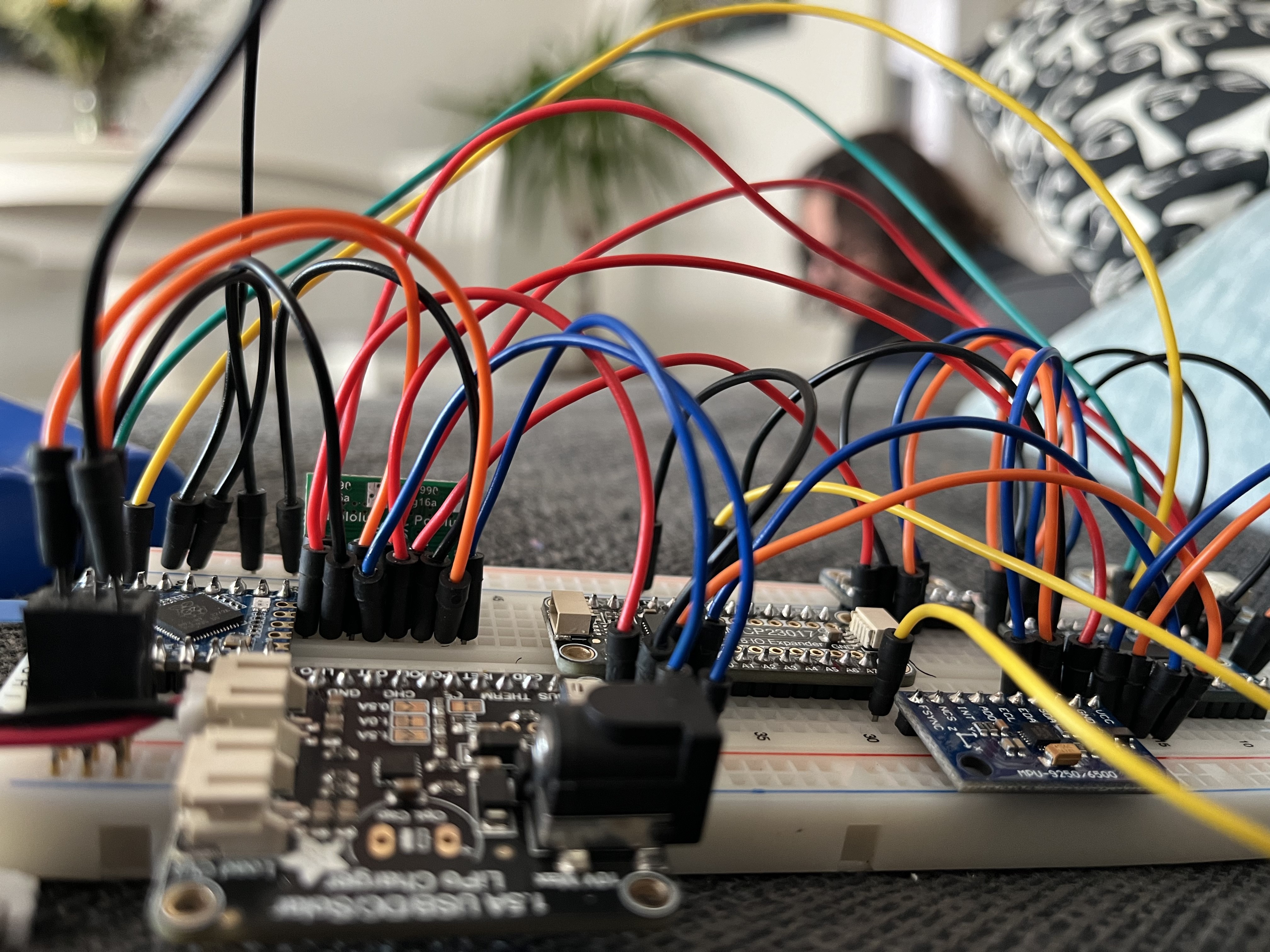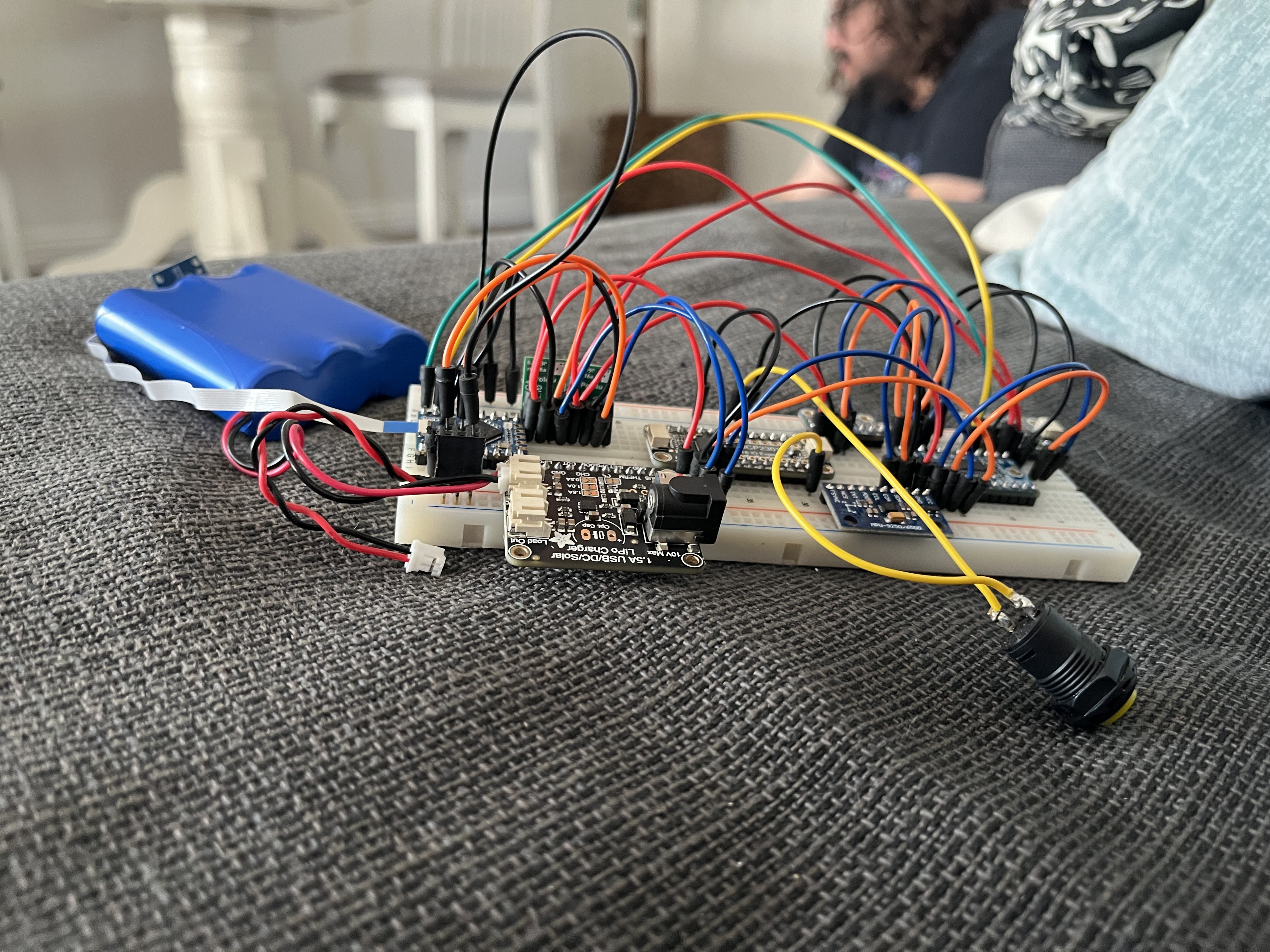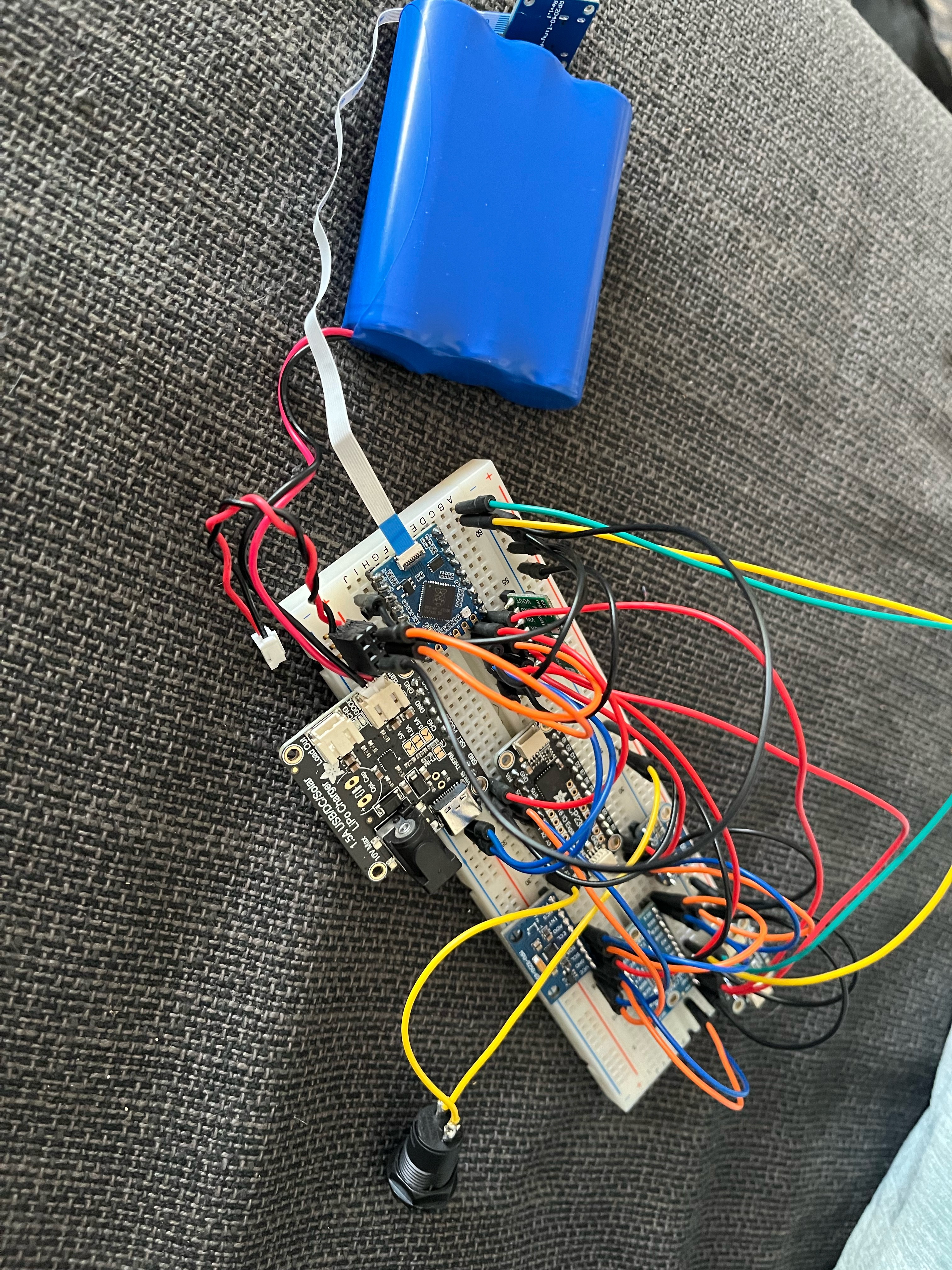The FUFF MUX works as designed. I breadboarded each of the ICs included on the PCB, as well as three different I2C devices I had in my parts box:
- FUFF MUX
- 3.3V regulators (the breadboard used the D36V6F3 instead of the SPX3819M5-L-3-3)
- BQ24074 - Battery charger
- MCP23017 - GPIO expander
- TCA9548A - I2C multiplexer
- External Devices
- MCP9808 - temperature sensor
- MPU9250 - combined 3-Axis gyroscope / 3-Axis accelerometer with a separate AK8963 3-Axis magnetometer on the same die
- VL53L0X - ToF lidar sensor
- RP2040-Tiny - main controller for I2C devices
Here are some fun pics of the breadboard in all its messy glory:




This is the `main.py` file I wrote, but the Git commit with library submodules is coming soon.
from machine import UART, Pin, I2C, Timer
from micropython_mcp9808 import mcp9808
from mpu9250 import MPU9250
from ak8963 import AK8963
import VL53L0X
import mcp23017
import tca9548a
import time, utime
'''
TODO:
Yaks to shave:
- [x] Proof of life from Pico by enumerating U2F drive on laptop and accepting a compiled program
- [x] Serial communication - UART0 is Bogarted by Thonny so we have to use UART1 for traditional USB-serial comms
- [x] I2C hello world - do a scan and see at least one device at the expected address
- [x] I2C Read and write MCP9808 temp sensor (at least individually)
- [x] I2C Read and write MPU9250 IMU sensor (at least individually)
- [x] I2C Read and write VL53L0X ToF sensor (at least individually). Don't forget to remove the P&P Kapton
Meat & Potatoes
- [x] I2C Read and write TCA9548A I2C Mux (at least individually)
- [x] I2C Read and write MCP23017 GPIO expander (at least individually). Consider switches
- [x] I2C read & write through multiplexer
'''
uart1 = UART(1, baudrate = 115200, tx = Pin(4), rx = Pin(5))
i2c0 = I2C(0, scl = Pin(1), sda = Pin(0), freq = 100000)
i2cmux = tca9548a.TCA9548A(i2c0)
def test_ext_uart_mon():
print("test_ext_uart_mon: Testing UART transmission to external serial monitor...")
txData = b'hello UART, from RP2040!\n\r'
uart1.write(txData)
print(txData)
print("test_ext_uart_mon Complete")
print()
def test_i2c_scan_chain():
print("test_i2c_scan_chain: Testing I2C read capabilities:")
print("Devices on I2C0: ")
print(" ".join(hex(n) for n in i2c0.scan()))
print("test_i2c_scan_chain Complete")
print()
def test_temp_sensor():
print("test_temp_sensor: Testing MCP9808 temperature sensor writing and reading")
temp = mcp9808.MCP9808(i2c = i2c0, address = 0x18)
for tempres in mcp9808.temperature_resolution_values:
print(f"Writing temperature resolution setting: {tempres}")
temp.temperature_resolution = tempres
print("Reading temperature resolution setting: ", temp.temperature_resolution)
for sample in range(10):
print(f"Reading temperature {sample+1}/10: {temp.temperature:.4f}°C")
time.sleep(0.2)
print("test_temp_sensor Complete")
print()
def test_imu():
print("test_imu: Testing MPU9250 IMU writing and reading")
dummy = MPU9250(i2c = i2c0)
print(f"Reading MPU9250 id: {hex(dummy.whoami)}")
print(f"Writing calibration info for magnetometer")
ak8963 = AK8963(
i2c0,
offset=(-136.8931640625, -160.482421875, 59.02880859375),
scale=(1.18437220840483, 0.923895823933424, 0.931707933618979)
)
imu = MPU9250(i2c = i2c0, ak8963 = ak8963)
for sample in range(10):
print(f"Reading MPU9250 Sensors {sample+1}/10")
print(f"Accel: {imu.acceleration}")
print(f"Gyro: {imu.gyro}")
print(f"Mag: {imu.magnetic}")
print(f"Temp: {imu.temperature}")
time.sleep(0.1)
print("test_imu Complete")
print()
def test_tof():
print("test_tof: Testing VL53L0X ToF Lidar writing and reading")
tof = VL53L0X.VL53L0X(i2c0)
print(f"Writing pulse period info for ToF")
tof.set_Vcsel_pulse_period(tof.vcsel_period_type[0], 18)
tof.set_Vcsel_pulse_period(tof.vcsel_period_type[1], 14)
tof.start()
tof.read()
for sample in range(10):
print(f"Reading ToF Sensor {sample+1}/10: {tof.read()}")
time.sleep(0.1)
tof.stop()
print("test_tof Complete")
print()
def test_gpio_expander():
print("test_gpio_expander: Testing MCP23017 16-bit GPIO expander writing and reading")
gpio_exp = mcp23017.MCP23017(i2c0, 0x20)
print("Writing config values")
gpio_exp.config(interrupt_polarity=1, sequential_operation=0, interrupt_mirror=1)
# A7 is connected to my test switch
gpio_exp.pin(7, mode=1, pullup=True)
for sample in range(5):
print(f"Reading switch {sample+1}/5: {gpio_exp.pin(7)}")
time.sleep(1)
print("test_gpio_expander Complete")
print()
while(True):
print("Starting FUFF Tests")
#test_ext_uart_mon()
# disable all 8 channels
i2c0.writeto(0x70, b'\x00')
test_i2c_scan_chain()
# enable channel 0 (SD0,SC0)
i2c0.writeto(0x70, b'\x01')
test_i2c_scan_chain()
test_temp_sensor()
#enable channel 1
i2c0.writeto(0x70, b'\x02')
test_i2c_scan_chain()
test_imu()
# enable channel 2
i2c0.writeto(0x70, b'\x04')
test_i2c_scan_chain()
test_tof()
# enable channel 3
i2c0.writeto(0x70, b'\x08')
test_i2c_scan_chain()
test_gpio_expander()
print("FUFF Tests Complete. Restarting in 10s")
time.sleep(10)
Discussions
Become a Hackaday.io Member
Create an account to leave a comment. Already have an account? Log In.